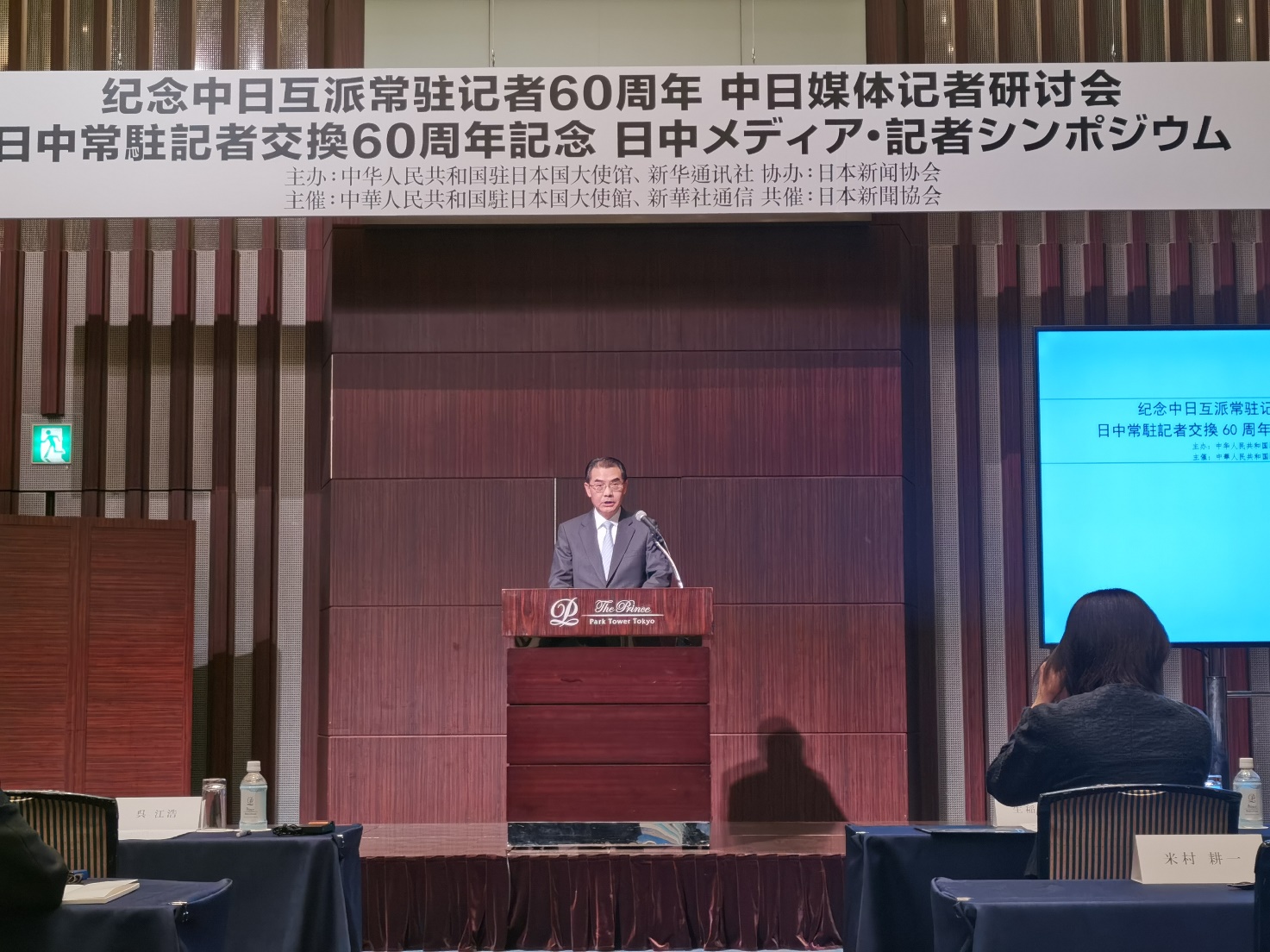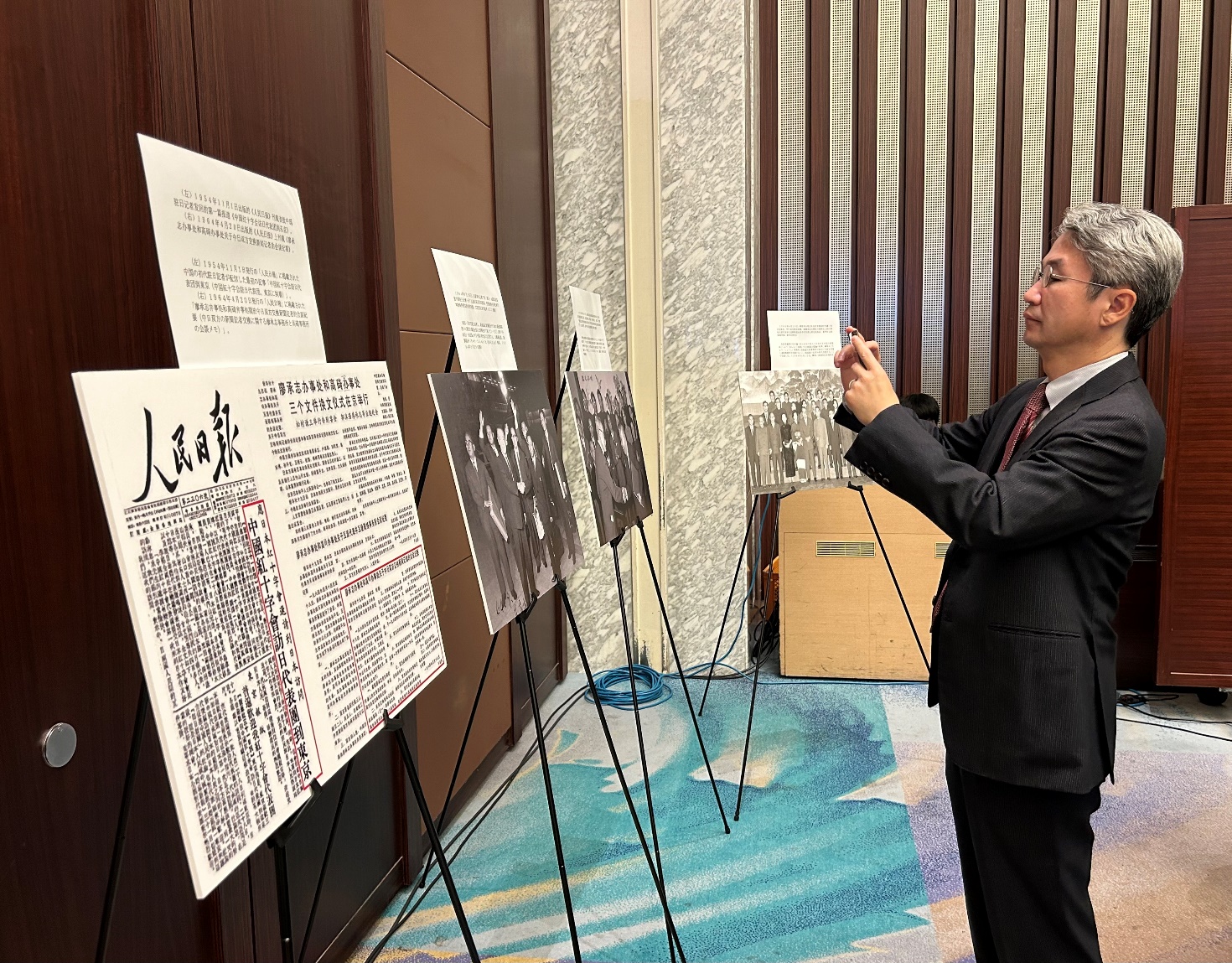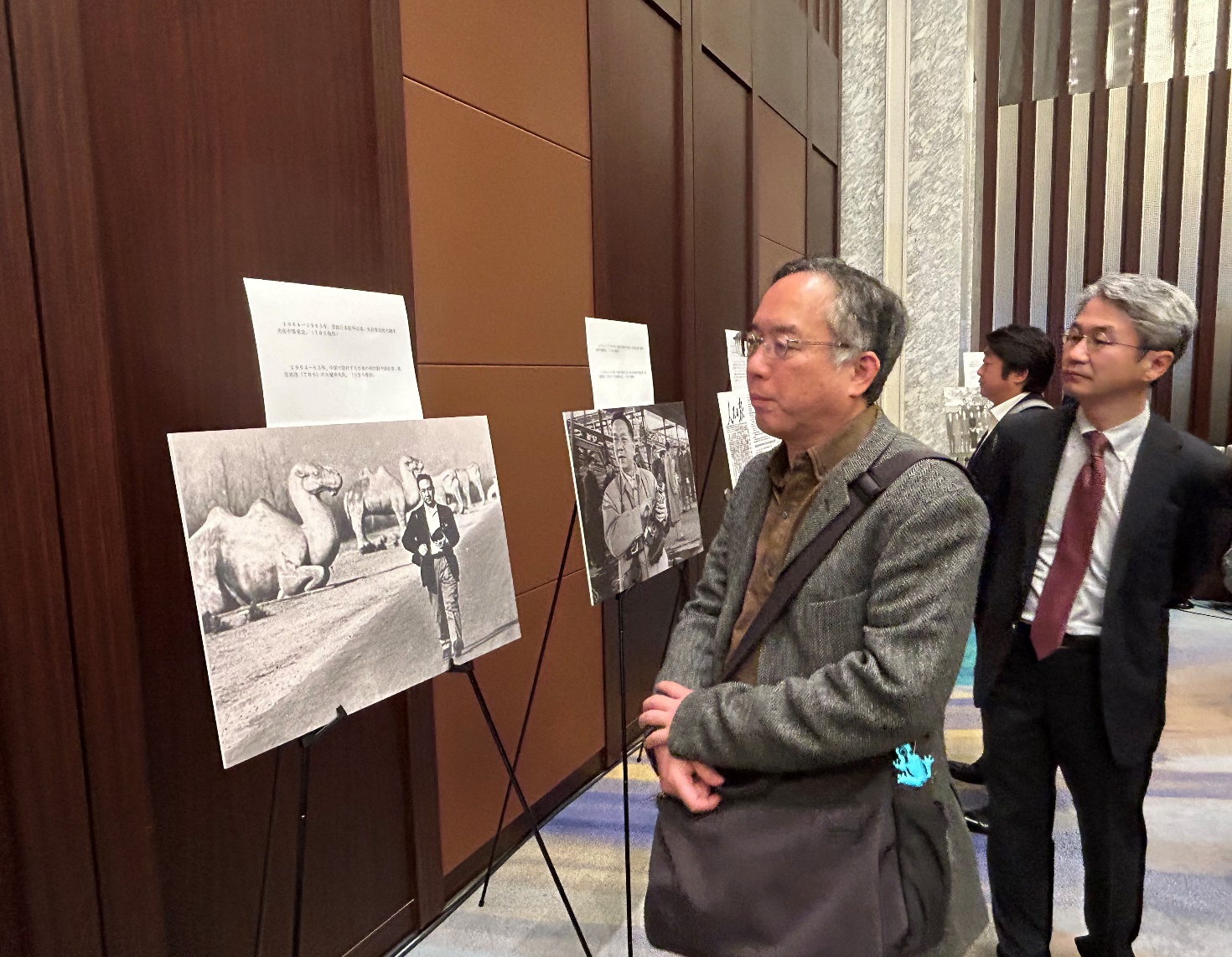Journalists urged to keep contributing to ties at event marking 60 years of landmark resident correspondent program

At a China-Japan journalists’ symposium held in Tokyo on Nov 18, officials and experts from both nations called for the media to help foster a constructive and stable bilateral relationship that aligns with the demands of the new era.
At the symposium commemorating the 60th anniversary of the exchange of resident correspondents between China and Japan, they also called on the media to provide accurate, objective reporting and promote mutual understanding between their people.
The event was organized by the Chinese embassy in Japan and Xinhua News Agency, with support from the Japan Newspaper Publishers and Editors Association.
On April 13, 1964, then Chinese Premier Zhou Enlai met with Japanese politician Kenzo Matsumura, which led to an agreement on the mutual dispatch of journalists between the two countries.
On Sept 29 that year, a delegation of seven Chinese journalists led by Xinhua reporter Ding Tuo arrived in Tokyo, while nine Japanese journalists landed in Beijing the same day.
This milestone marked the first formal exchange of resident correspondents between the two nations.
ALSO READ: Xi: China-Japan ties at critical period of improvement

Liu Deyou, former vice-minister of China’s Ministry of Culture, praised the milestone in a video message played at the symposium’s opening ceremony.
He said that the exchange of journalists was made possible by the vision and persistent efforts of earlier generations of Chinese leaders and farsighted Japanese politicians who sought to break the diplomatic deadlock.
Liu also noted that establishing memorandum trade offices and the journalist exchange marked a significant shift from purely civil interactions to semi-official exchanges, laying a solid foundation for the normalization of China-Japan relations in September 1972.
Wang Jinfu, director of Xinhua’s Asia-Pacific Regional Bureau, underscored that the 60-year history of mutual journalist exchanges demonstrates that the media serves as a vital bridge for fostering mutual understanding, particularly between China and Japan.
Chinese Ambassador to Japan Wu Jianghao emphasized that resident correspondents build a bridge of information between the two countries, bearing the important responsibility of enhancing mutual understanding among their people.
Wu noted that China-Japan relations are currently at a pivotal stage of development.
On Nov 15, Chinese President Xi Jinping met with Japanese Prime Minister Shigeru Ishiba in Lima, Peru, where both leaders reaffirmed their commitment to advancing a strategic and mutually beneficial relationship. They also pledged to build a constructive and stable relationship that meets the requirements of the new era.
Guided by high-level strategic exchanges, dialogues at various levels and across multiple fields between China and Japan are unfolding in an orderly manner, Wu said.
He urged journalists from both countries to serve as advocates for stronger China-Japan relations by understanding the broader trajectory of bilateral ties, promoting accurate perceptions, and supporting mutual benefits and shared development.
Wu encouraged journalists to discover positive changes and bright spots in people-to-people exchanges to strengthen the goodwill between the two nations.
He also called for objective and balanced reporting on major regional and international issues to help promote a global path of peaceful development.

Tsuyoshi Hasebe, vice-president of the Japan Newspaper Publishers and Editors Association, emphasized the pivotal role journalist exchanges play in fostering mutual understanding between the people of China and Japan. He noted that reporting from both sides has provided valuable insights into each other’s nations.
“Although we have encountered various challenges in the past, our mission remains steadfast: to report the truth and nurture friendly relations. Through our coverage, we can create dynamic exchanges between the two countries,” Hasebe said.
Akiko Ikuina, Japan’s parliamentary vice-minister for foreign affairs, highlighted the symposium’s profound significance in advancing constructive and stable Japan-China relations.
“The two countries have immense potential for development but also face various challenges and unresolved issues. Both government officials and journalists must make tireless efforts to convey the right message to our citizens,” Ikuina said.
Shoichi Kondo, a member of Japan’s House of Representatives, stressed the value of grassroots exchanges, noting that Japanese and Chinese people share similar appearances and cultural affinities.
However, he acknowledged that differences remain, underscoring the necessity of deepening mutual understanding.
“Through the exchange of resident journalists, it is crucial to objectively present the realities, perspectives, and authentic circumstances of each country, fostering greater mutual understanding,” Kondo said.
Wang Taiping, former Chinese consul general in Osaka and a former resident journalist in Japan, said in a video message that China-Japan relations currently stand at a crossroads.
He said he hoped that Japanese media would uphold the positive traditions established during the normalization of diplomatic ties, accurately recognize and position China from a strategic perspective, and help enhance mutual understanding and friendship between the two nations.
jiangxueqing@chinadaily.com.cn


